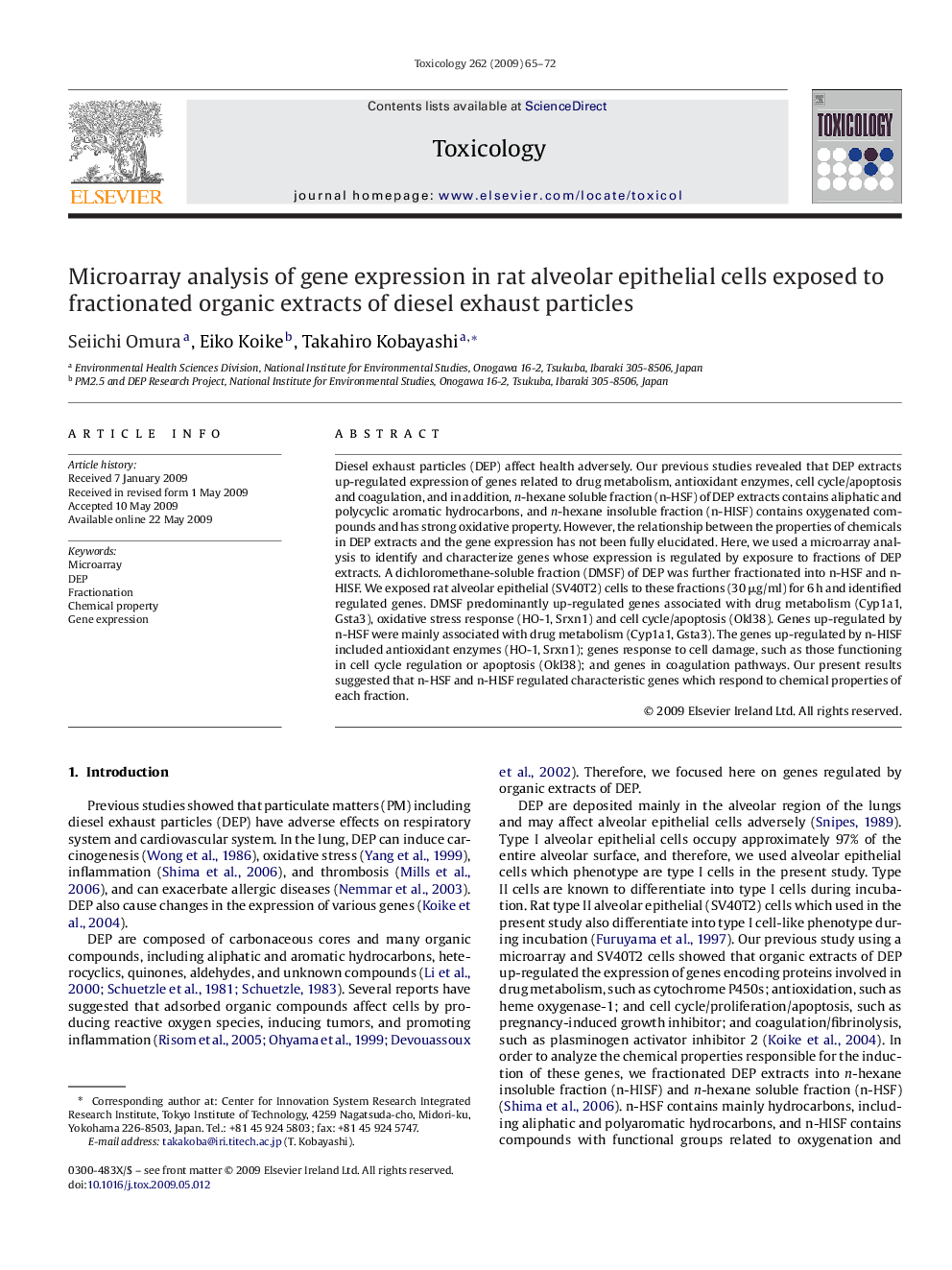| Article ID | Journal | Published Year | Pages | File Type |
|---|---|---|---|---|
| 2596535 | Toxicology | 2017 | 8 Pages |
Abstract
Diesel exhaust particles (DEP) affect health adversely. Our previous studies revealed that DEP extracts up-regulated expression of genes related to drug metabolism, antioxidant enzymes, cell cycle/apoptosis and coagulation, and in addition, n-hexane soluble fraction (n-HSF) of DEP extracts contains aliphatic and polycyclic aromatic hydrocarbons, and n-hexane insoluble fraction (n-HISF) contains oxygenated compounds and has strong oxidative property. However, the relationship between the properties of chemicals in DEP extracts and the gene expression has not been fully elucidated. Here, we used a microarray analysis to identify and characterize genes whose expression is regulated by exposure to fractions of DEP extracts. A dichloromethane-soluble fraction (DMSF) of DEP was further fractionated into n-HSF and n-HISF. We exposed rat alveolar epithelial (SV40T2) cells to these fractions (30 μg/ml) for 6 h and identified regulated genes. DMSF predominantly up-regulated genes associated with drug metabolism (Cyp1a1, Gsta3), oxidative stress response (HO-1, Srxn1) and cell cycle/apoptosis (Okl38). Genes up-regulated by n-HSF were mainly associated with drug metabolism (Cyp1a1, Gsta3). The genes up-regulated by n-HISF included antioxidant enzymes (HO-1, Srxn1); genes response to cell damage, such as those functioning in cell cycle regulation or apoptosis (Okl38); and genes in coagulation pathways. Our present results suggested that n-HSF and n-HISF regulated characteristic genes which respond to chemical properties of each fraction.
Related Topics
Life Sciences
Environmental Science
Health, Toxicology and Mutagenesis
Authors
Seiichi Omura, Eiko Koike, Takahiro Kobayashi,
